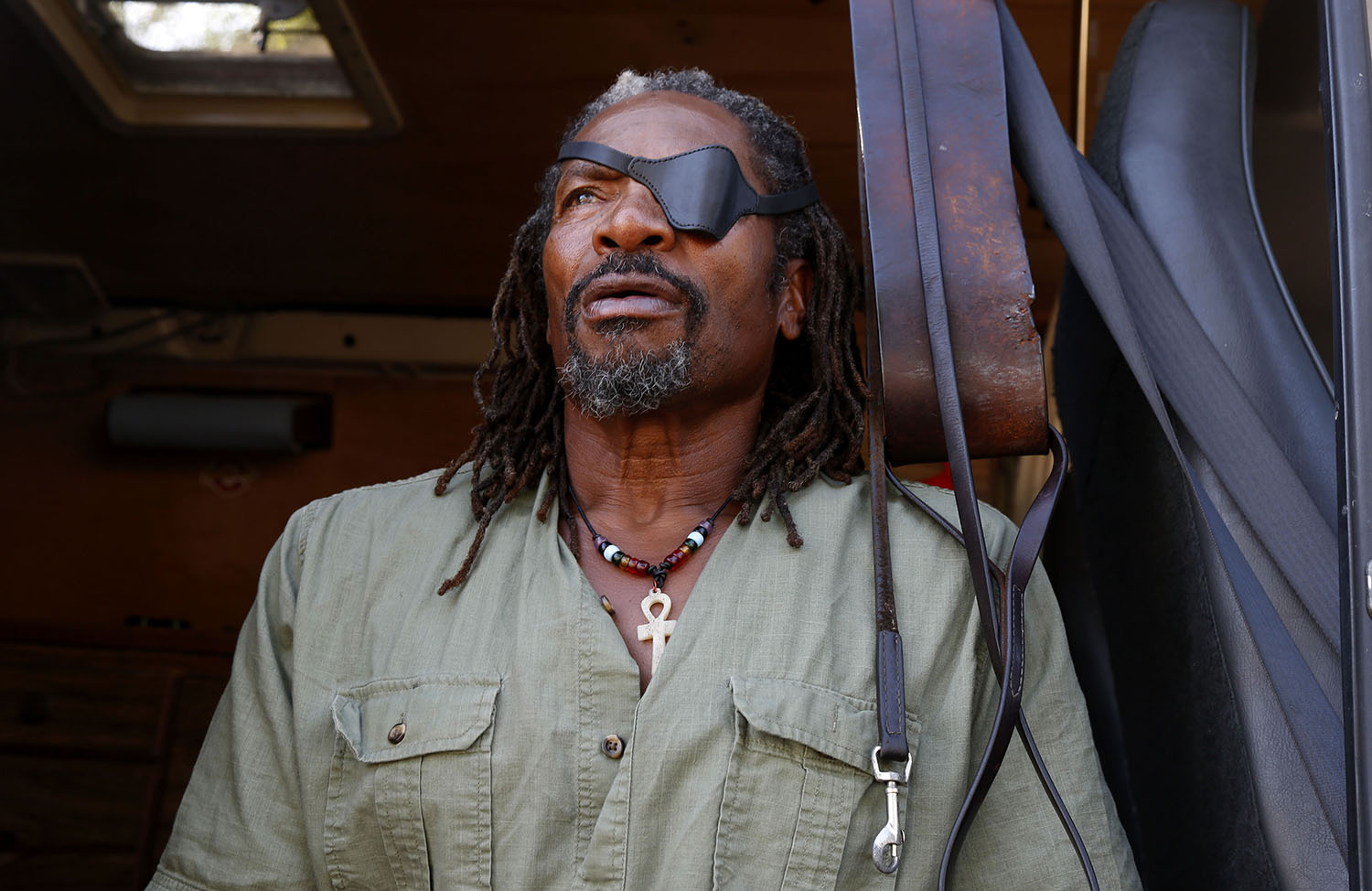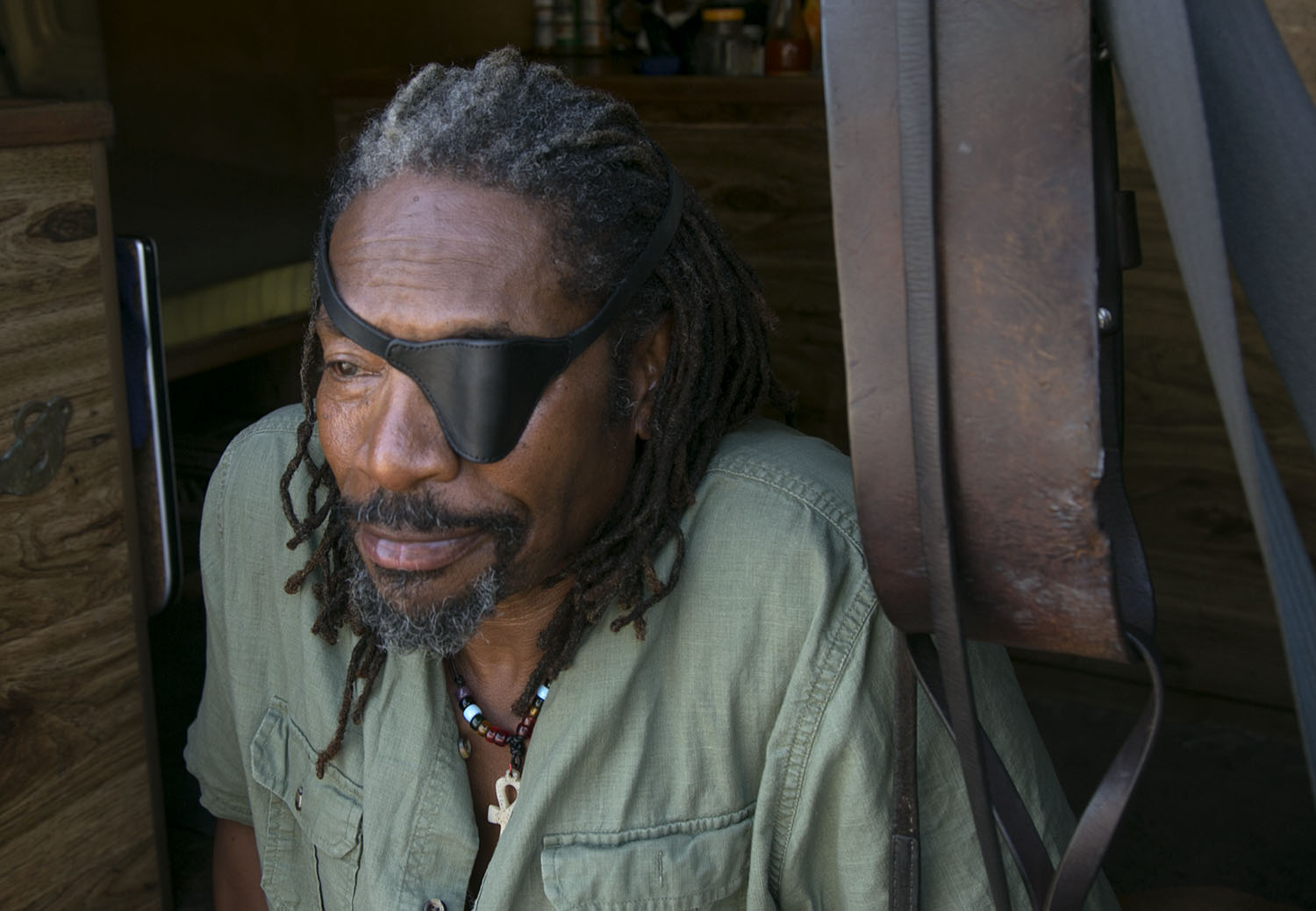Matthew
Matthew, 58, was in the U.S. Army for four years. He loved the training, the regimen, the discipline and order. “I was in for four years, but I wanted to make it a lifetime. I really enjoyed the Army, it gave me something I never had before… I was recruited from the Joint, from the penitentiary. That was back in the ‘70s when they would recruit you from jail. Now you can’t get in unless you’re a strait A student.”
Back in the day of the draft, you could either join on your own or get drafted, he said. It was 1972, “a time of turbulence. And I was thinking.. anything to get me out of jail.” It was the best thing that could have happened to him, he said. “I’m a much better person… because it gave me a code of conduct, camaraderie that you would never meet unless you were a soldier.”
Matthew described growing up in Minneapolis in an alcoholic environment with a lot of poverty. “I belonged to the projects, in every city I lived in. It was hard living for Black folks. Last to come, first to go. And the only time I ever excelled at anything was when I was a soldier.”
The second oldest of four children, he was always different because of his un-diagnosed dyslexia. Instead of people recognizing his learning problem, he said he was beaten for “not paying attention” or not reading things correctly. He was constantly told he wasn’t good enough.
“That was back in the day: spare not the rod, or spoil the child. I was always getting beaten because I couldn’t tell the difference between a b and a d,” he said. “People are aware of those things now. If I had had a little bit more encouragement and patience, I wouldn’t have ended up in the penitentiary. I was running because I felt inadequate. And I felt like I was a burden.”
After some disagreements with his father, his parents awarded him to the state of Minnesota at age 13. He moved from boys’ home to boys’ home to boys’ home, and between foster homes as well until he was 20. He moved along the dark side of the street.
“You know stealing,” he explained. “You know how it is when you’re an adolescent with no job, no way of supporting yourself, you go to the streets. Selling drugs, bootlegging, you know, doing what bad kids do without any supervision. And I even felt when I was in the penitentiary, I wasn’t captured I was rescued cuz I’d eventually have gotten killed or something.
“That’s the way it was back then. It was hard times. Nobody was working. There were riots, Martin Luther King getting killed, Malcolm X, Robert Kennedy, John F. Kennedy… a lot of things was happening. In Minneapolis they were burning up Plymouth Avenue.”
He’s seen more death than most people will ever see in their lives, not in combat but in the streets of America, “just from the inner city violence going on right now. I grew up in a time when there were barbecues and parties and it was about dancing and romancing. Now it’s about killing. And they ain’t even making any money at it, they’re just doing it for prestige.”
Matthew concedes he’s not making excuses for his own time living off the street culture, making a living selling drugs, working dog fights, being “a pimp, a player, a hustler and everything in between.” He said people now don’t realize the ramifications of getting into that lifestyle. Always having to carry a pistol, looking over your shoulder, not trusting anyone. “There’s no friends in that business. It’s a horrible way of living. I always felt that I wasn’t a ‘bad guy’ I was just caught up in the life.”
One of the boys’ homes he lived in taught him horseback riding and caring for animals. That inspired him to want to be a veterinarian. That’s why he sought out a the medical battalion when he joined the military.
He moved up the ranks fast in the Army. “I’ve always been in a leadership position, whether it was squad leader, platoon guide, assistant platoon guide, whatever. I was always in a leadership role. I’d never had that kind of validation before. I mean they really made me feel good. It gave me dignity. It gave me conduct. I was clean, I was highly motivated. And I loved it, and I was going to make a life out of it. But due to drugs and alcohol, and being an alcoholic: one drink is too many and a thousand isn’t enough… We work hard we play hard; that was the lifestyle.”
Succumbing to the lure of alcohol and cocaine threw a wrench in his upward mobility.
“It was a sad day when I went AWOL. I left and never went back.”
Matthew was too embarrassed to face the men he knew were counting on him to continue to lead by example. He’d let them down by giving in to drugs and alcohol and couldn’t face them.
“I was headed to be Airborne, a combat medic, a Ranger, you know I was going for it. I had the ticket to go. And I blew it, being over-anxious, and too cocky, all of the above. Alcohol and cocaine turned me into a different human being. When cocaine came on the scene that was like mana from heaven. People loved that white powder.”
He needed to get away from “the life” and his son suggested he move out to San Diego where he (the son) was stationed at MCRD. His son moved to L.A., but the two stay in touch and Matthew is proud of their positive relationship.
Living out of his van, for which he doesn’t always have gas money, he is spared the complexity of sleeping on the sidewalk or in a park. The only refuge he has now is being around soldiers, even at Stand Down, he said, because there’s some semblance of brotherly love among them.
“San Diego’s been very good to me. I found a peace that I’ve never had before. A way of life that allows me to be concerned for the world my grandchildren will inherit; to think about my children rather than myself,” Matthew said. “I’m hoping to live a life of dignity to show them they don’t need drugs and alcohol. I believe that you teach by example. I still have a lot of amends to make out there.”
Matthew hasn’t seen his 15-year-old daughter in 10 years and wants to make sure she knows the side of her family that he represents. His experience on the street tells him most women that are homeless suffer “daddy issues,” he said. “That’s where a girl gets her stability: from is her father. Just as a man gets his courage through his mother.”
Ironically since he’s not drinking and doing drugs, he can’t find a bed in a shelter, since most shelters are funded to give a bed to someone with substance abuse. He’s frustrated because he doesn’t need much. “I only need a safe place to rest, wash my clothes and my body, charge my phone, get fresh water.”
He believes there should be a shelter operated by homeless veterans. One without curfews, but that imposes some of the regimen familiar to them from the military. “Some of these guys are coming back from war, or otherwise leaving the military and have no job and no way of getting a job. They need structure back in their life. To give them a way back in, without making them feel short or guilty of imperfection,” he said. “Because they’ve already paid their dues. They’ve already suited up and showed up.”





